Interview with a young naturalist
Young naturalist, activist and author Dara McAnulty has found inspiration and comfort in the natural world, especially as a young person with autism. Here, the former Scout talks to us about the central role nature plays in his life.
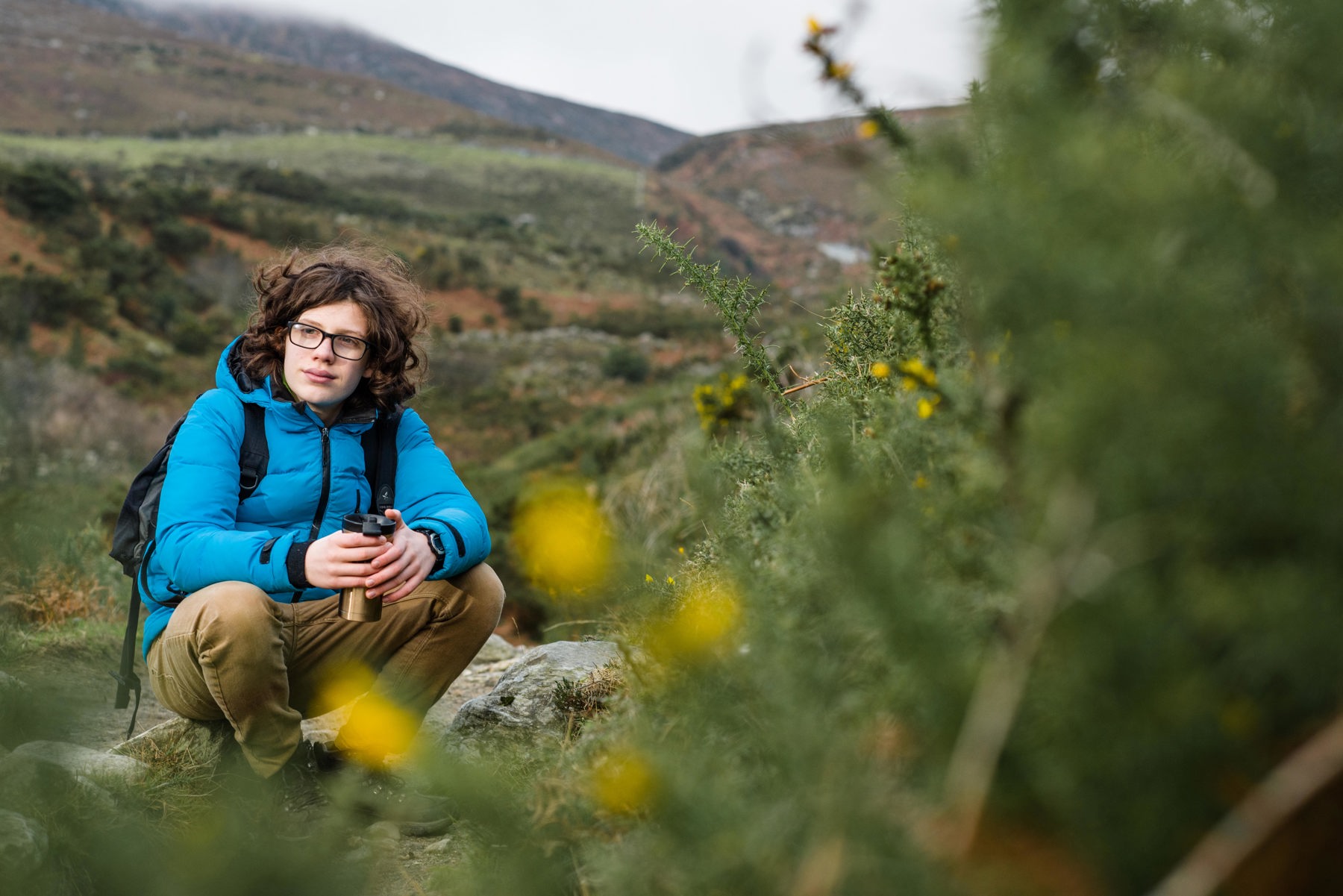
At the age of 12, wildlife enthusiast Dara McAnulty sat down at his keyboard and started a blog: Young Fermanagh Naturalist. It was an attempt to get all his thoughts down, and to share his passion for the ‘beauty and wonder of nature; the challenges it faces, and the ways we can help’.
Over the days, weeks and months that followed, Dara watched in amazement as his writing quickly gathered support from some of the world’s most eminent conservationists and environmental leaders.
Since then, he’s captured the imagination of thousands across the globe, spoken at 10 Downing Street, and scooped up numerous awards for his contribution to conservation, including the title of BBC Springwatch’s ‘Unsprung Hero’, Birdwatch Magazine’s ‘Local Hero’ and the prestigious RSPB medal, of which he’s the youngest ever recipient, joining the likes of previous winners Sir David Attenborough and Bill Oddie OBE.
Dara talked to us about how his passion began with picking up feathers in the playground and took flight thanks to the support and encouragement of a very special Scout Group – where he found himself at home in the company of other young people who shared his love of the landscape.
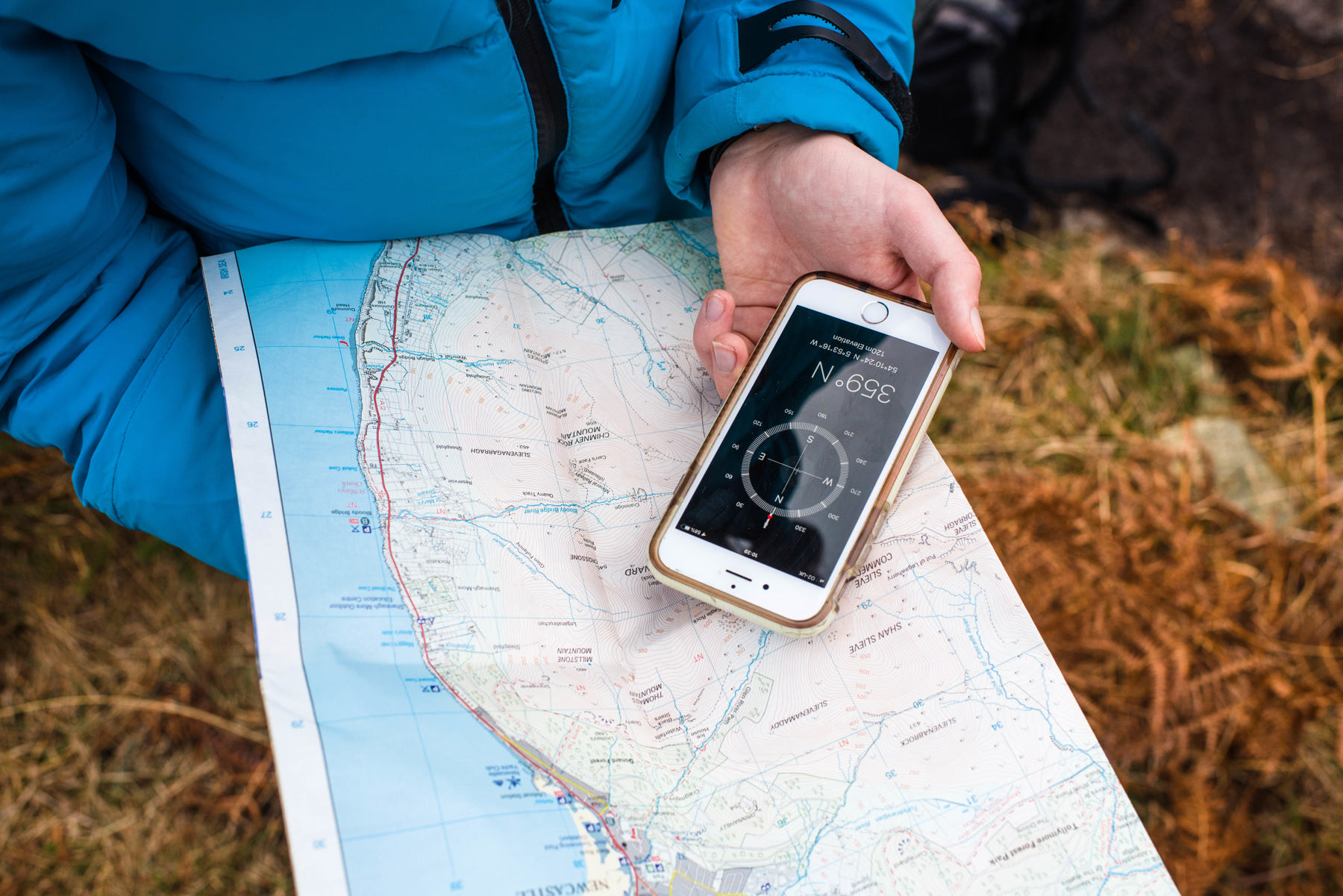
It all started with picking up feathers. Growing up in Belfast, I was used to being enclosed by massive buildings; to feeling contained and constrained. But there were trees lining the street. And a park to run around in. And there were plenty of pigeons that would drop feathers on the ground as they scurried past. As a small child I’d pick those feathers up and look at them for hours, marvelling at all of the subtly different patterns and colours, finding little bits of wonder in them. The more I saw, the more I wanted to learn.
My earliest memories fall into two categories: either I was spending time inside my own head, or I was amongst the creeping, crawling, fluttering wild things. I’m autistic, and the natural world always made sense to me in a way that people just didn’t. I can still remember lying in bed with my parents, aged three, waiting to hear the early morning notes of the blackbird on the roof, harking from the kitchen extension. Whenever it came, I’d breathe a sigh of relief, because it meant the day had started just like any other. There was symmetry to it. Clockwork.
A lot of young people don’t get the chance to get to know nature, because their parents think it’s ‘dirty’. I’ve seen parents warn their children: ‘Don’t touch that feather!’ or ‘Don’t go near the mud!’ I’ve lived in cul-de-sacs alongside families who keep their children indoors and empty-nesters who tend to their lawns with scissors. If you’re raised to view nature as unclean and unpleasant, you might always see it that way, but if you’re allowed to explore nature from a young age, the likelihood is you’ll fall in love with it, and you’ll continue to love it for the rest of your life.
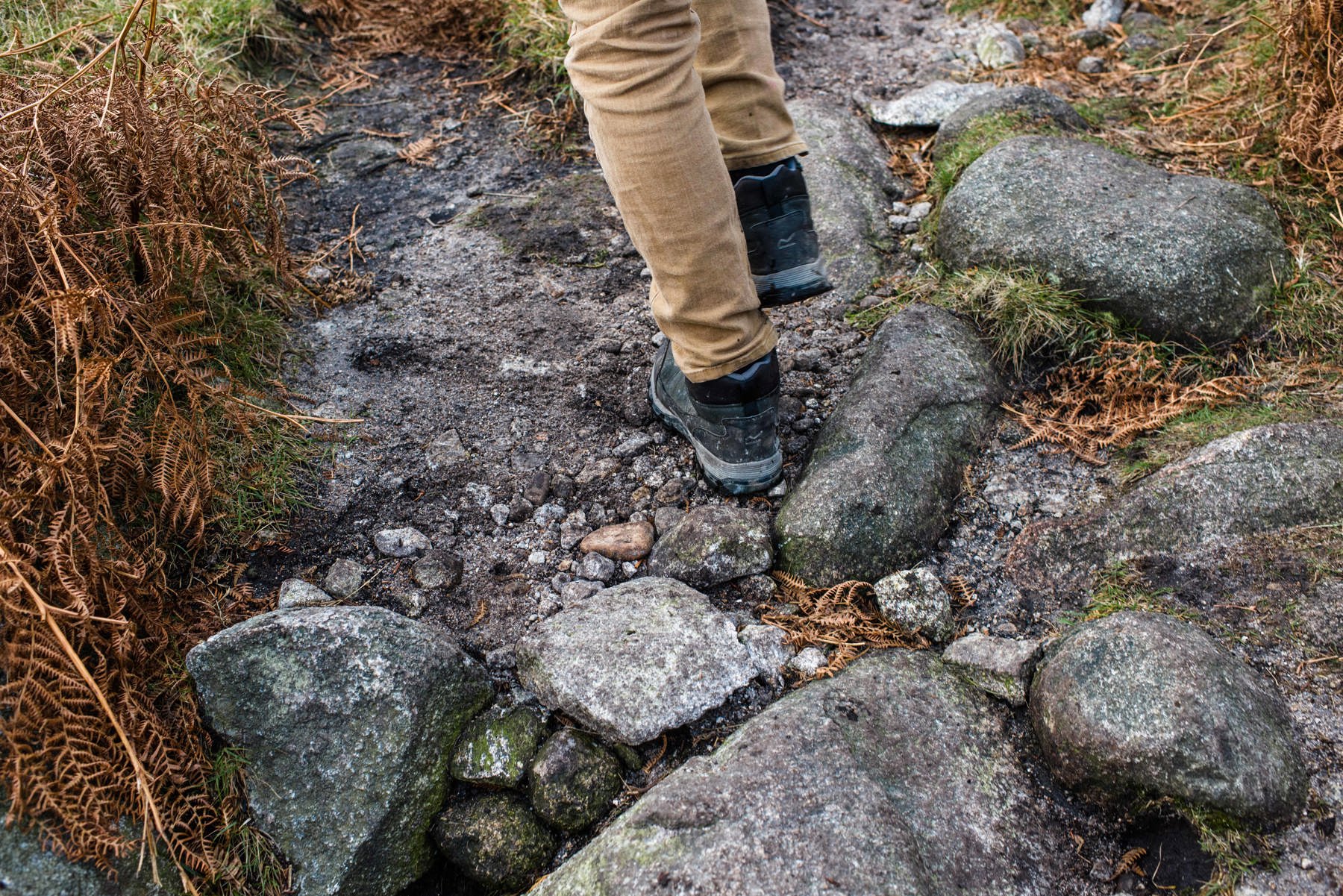
It doesn’t matter where you live, or how much money you have; all you have to develop a better relationship with nature is to start noticing things. Start small. You don’t need fancy equipment and you don’t need to live in the countryside. Maybe, next time you’re out on the street, you could listen out for the birds instead of automatically putting your headphones in. Or you could take a look at a street tree, noticing the patterns in the bark.
Once you start noticing, you develop that sense of place; that connection. I’ve always believed that anyone can do this, because everyone is born into this world with an innate yearning to connect to nature. It’s how your life unfolds as you get older that determines what happens next, I think; whether you’ll pursue that connection or lose out on it.
I knew early on that my passions weren’t typical. In primary school, it became apparent pretty quickly. No one else got quite so excited over a fallen acorn. When I tried to show people the worms I’d found in the playground, they’d run away. I was badly bullied for a while. My inability to break into the world of talking about football and Minecraft wasn't tolerated. But I found solace in writing down how I felt about nature. It made it more real.
I didn’t start out planning to be an activist for our climate and environment; it was more of a graduation into that space. I guess it began with my blog. I started it in June 2016 as a way to process my thoughts, and was soon shocked and overwhelmed by the response to it from people all over the world. When I got a few followers, I moved into Twitter because I wanted to really make sure that my message was heard.
I’ve since met some wonderful people and have had extraordinary opportunities. I’ve pushed myself to the very limits of my comfort zone, doing things I was scared to death of doing not so long ago; things I’d previously felt so overwhelmed by I’d get palpitations and want to be sick.
When I won the RSPB medal for my contribution to conservation, I made mistake of looking at the previous winners (who include some of my heroes, like Sir David Attenborough). I just couldn’t believe I deserved it. I thought it was a joke at first! I’m so grateful, and I hope to use these opportunities to show people that those who are autistic can achieve amazing things if they’re placed in a nurturing environment.
After I found out about the crisis our world is in, I couldn’t stand by and do nothing, but I don’t think campaigning is the magical elixir. We need a lot more than our voices. We need reforms to the education system. We need more places for young people to go. We need governments to listen. We need social justice. All of these things. Only then will nature be fully healed.
Scouts was a game-changer for me. For the first time, I was surrounded by people who wanted to be outside as much as I did. My leader, Tony, was the person who showed me the absolute wonder that could be found in pursuing my interests. He was absolutely inspiring to be around, because he led by example and had all of these amazing outdoor skills which he’d share with us all. Seeing that other people could feel that connection to nature as intensely as I did made me feel less alone; it helped drive me forward.
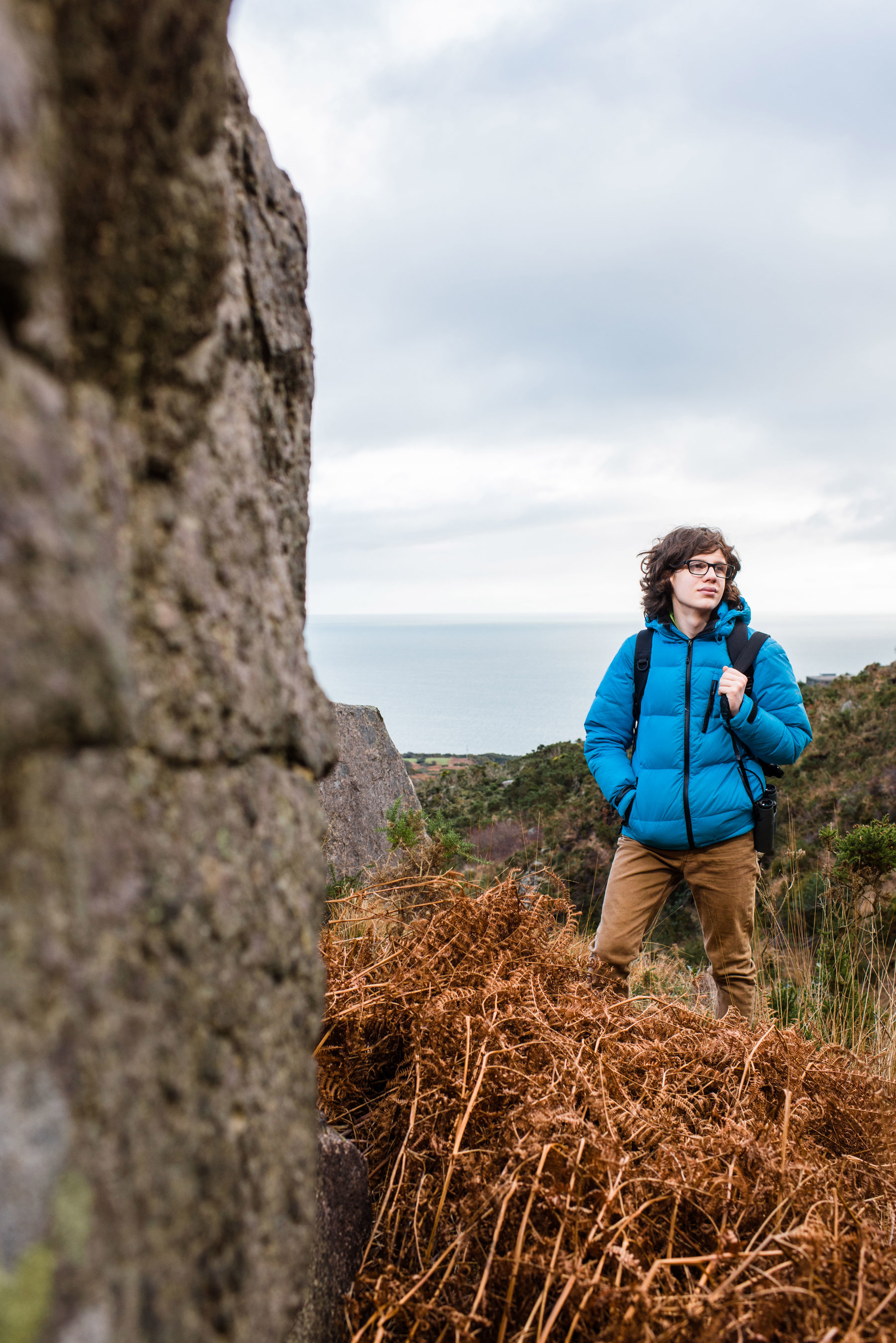
Before Scouts, my experiences with nature had always been pretty insular. Being outside with other people was an entirely different experience. There was lots of time spent talking, and big camps we’d go on pretty much every month together. It helped me to develop my conversational skills, which were abysmal at the time! Now, I can stand up in front of crowds to talk about my passion for nature, which is an amazing improvement. I’d recommend Scouts to anyone: I think it’s one of the best things you can do.
Recently I’ve started an Eco Group at my school. There are 18 of us, which is way more than I ever thought would show up. I was quite shocked at first. When we get together, I pass on a bit of knowledge about the creatures that live near our school and what we can do to help them thrive. Recently, we looked at the mudflat, and learned about all the waders and shellfish and seagulls who frequent it. It’s been an amazing experience. In previous schools, I’d always tried to set a group up, but there was always a reason not to do it: like not having enough teachers to supervise, or problems with insurance.
Moving out of the city when I was a bit younger was an incredible experience for me. For the first few nights, I could hardly sleep because I was distracted by the sound of the cows mooing in the field outside. I’d never heard anything like it in my life! If you are autistic, change can sometimes feel traumatic. But it depends on what sort of change it is. In this instance, it was such a profound improvement; I’d adjusted to my new surroundings within a week. Now, I go out into the forest with my family most days. If I didn’t do that, I’d probably go insane. I don’t know what I’d do without it. It’s probably one of the best things I can do if I’m really stressed.
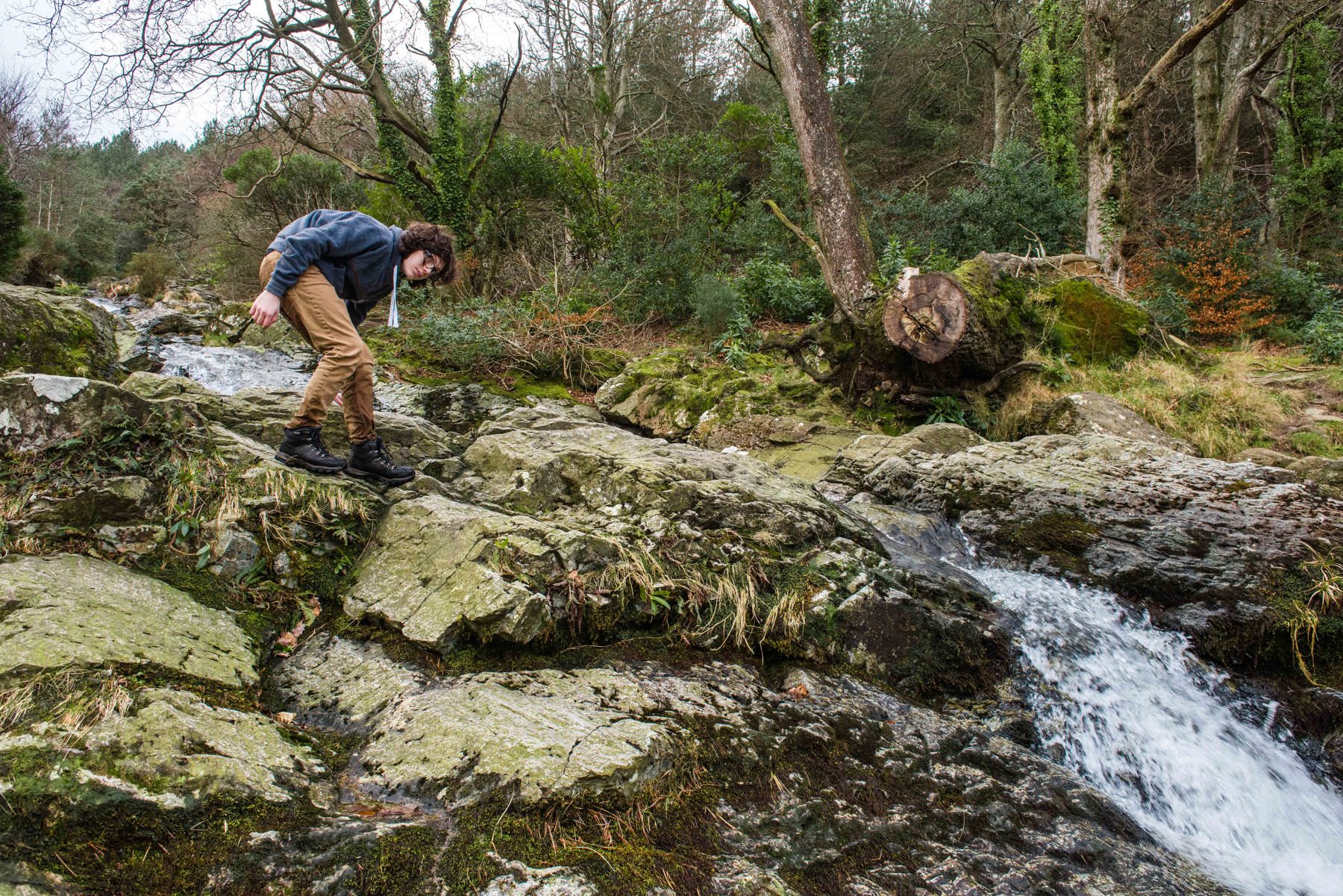
It’s hard to choose a particular favourite landscape, because I seek out different things to suit particular moods. If I’m anxious, I’ll go out into the forest for a bit. If I need some peace and tranquillity, I’ll go up a mountain. It’s hard to explain, because it’s not based on logic. It’s how I am. When I wake up in the morning, my brain will tell me: ‘OK, this is a day where I really need to go out and get into some woodlands’, or ‘This is a day where I could really do with being sat somewhere 700m above sea level’. It’s instinctive, and I think it’s something that you learn about yourself over time, the more you get to know the areas around you.
I have so many hopes and dreams for the future. I hope that our world begins to heal. I hope that the biodiversity crisis is resolved. I hope that people begin to listen to the scientists who are offering up solutions to these problems. I hope the education system is reformed, so nature can play a more prominent role within it. It can be hard not to feel disheartened when we look at the state of our planet, but I’ve seen dramatic changes happen before my eyes over the last few years in terms of attitudes. And young people are leading the way. I think it’s a miracle we’re finally waking up to beauty and fragility of this world, and working so hard to protect it. It gives me a lot of hope.
It’s hard to choose a favourite memory from my time at Scouts, but if I had to choose one, I guess I’d go for the woodpecker story. It happened on one our camps. I was hiding just behind a holly bush as part of a game. When I took a step forward, a massive woodpecker leapt out and scared the living daylights out of me. It was absolutely ginormous! It was actually the first woodpecker to be seen in this part of the world for a long time. You don’t really get woodpeckers in Ireland, so it was a bit of a shock.
Throughout the rest of the camp, we’d be lying in our tents at night and we’d hear the knock-knock-knocking of the wood. I can remember it so clearly; this blur of red and white feathers. I was in a state of shock for about ten seconds afterwards, to be honest, holding my breath. But standing there alone in the forest, realising what I’d just seen: it was spellbinding.
I’m not really sure how to describe the feeling I get when I’m out in nature.
It’s a multitude of different emotions, all flooding in at once. A mixture of contentness, happiness, joy, and wonder. All of them coming in in different ratios, and building up to this overwhelming feeling of amazingness. It’s impossible to describe it in full. And it’s impossible to simulate. When you feel yourself making that connection, you’ll know. It’s probably the best experience a human can have in this world.
Dara’s debut book, Diary of A Young Naturalist, will be released on 25 May. Published by Little Toller Books, it’s available to pre-order now